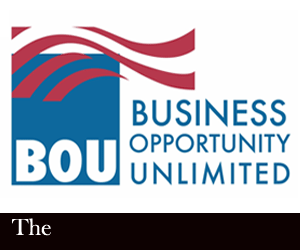While accelerator programs differ from one another, their ultimate goal is to get participant companies funded. They do this by immersing these companies in a rigorous, short-term — perhaps three months — “boot camp” which provides seed capital, space, business and finance classes, mentors, advisors, and networking opportunities with fellow entrepreneurs. In exchange, the accelerator program secures a small equity in those companies’ future success.
This accelerated program prepares participants for a culminating “demo day” where each graduate company presents their product in a business funding pitch to a large audience of potential investors. Interested backers and these well-schooled young startups can then forge a funding agreement that benefits both. Or these companies, confident in their ability to grow their businesses themselves, can choose to forego this venture capital. The choice is theirs. Either way, the overseeing accelerator program, as the business catalyst, maintains its equity option.
A period of economic recession is a time for innovation. While the incubator model offers young companies office space, access to resources and business training opportunities over a comparatively long time, the accelerator model can provide these and more as their startups “sprint” toward secured funding.
Over the past several years, new companies have been bubbling up and so, naturally entrepreneurs and investors alike have come up with a way to cope with the tremendous pace of growth: They have decided to speed things up a bit.
Speed has always been an extremely important element in investing. Creating more value faster is a tremendous benefit to the entrepreneur as well as the investors. The key is making sure you create long-term sustainable value because that’s the name of the game. It is just trying to get faster.
So What’s The Rush?
Not long ago, companies seemed perfectly happy to be incubated rather than accelerated.
During the late 1980s and early 1990s, small business incubators provided cozy homes for early-stage ventures, providing a place to work along with some back-office touches such as a receptionist, a fax machine and maybe a conference room for important meetings.Incubation was the traditional term, but the industry has grown far beyond that idea to the point where we are seeing financial backing being packaged together with marketing services, technology consulting, public relations, human resources support, and recruitment.
These days, investors and entrepreneurs, motivated by the land-rush mentality of the Internet, are scrambling to claim their turf before someone else beats them to it. An accelerator may bean individual, a small band of professionals with different areas of expertise, or a big consulting company–firms which have recently jumped into the game.
Typically, an accelerator will trade its contacts in the professional and financial communities–people such as accountants, lawyers, marketers–for an equity share in the company. The payoff for acceleration is potentially huge.
Now, more than ever before, there is a tremendous opportunity to grow an enormous company in a much shorter time frame. And the advantages of doing so are hard to ignore. It is extremely important to hurry a product to get to the market and grab your share of space because if you delay, someone will slip right in past you.
More than money
Besides advocating speed, many accelerators stress the value of assistance that often goes far beyond the strengths of most entrepreneurs. The whole concept of acceleration is not just providing real estate but providing mentors, consultants and professional assistance with aspects of running a business to which many young entrepreneurs would have had little or no exposure.
For entrepreneurs, such guidance can be critical. The ideal accelerator is not someone who is going to do the work for you–because no one can match the passion, drive and enthusiasm that you, as the entrepreneur, have for your concept. They are holding the flashlight while you’re running. The thought of an accelerator is as an enabler. They all work at your velocity and allow you to progress as fast as you are able to, but they are not going to drag you along at their speed.
If the relationship is not symbiotic between the accelerator and the entrepreneur and the entrepreneur and the professionals and investors we bring together, it is not going to last.
Both accelerators and entrepreneurs must go to great lengths to ensure that they are making the right choice when deciding on such a close partnership. The entrepreneurs must believe in accelerator because they’re counting on that, and the accelerator in return has to believe in the company.
Accelerators and entrepreneurs agree that the recent stock market volatility–and particularly the beating suffered by many technology-related companies during the second quarter–has taken some of the froth out of the private equity market but seems to have done little wide-scale damage.
The choice:
In the end it all boils down to what the entrepreneur wants. Traditionally incubators tend to be the government or educational institute run centers which tend to provide an office and infrastructure to entrepreneurs in a sector agnostic way.
Accelerators on the other hand tend to be more focused and prefer to operate in the tech domain. If you are fresher with little knowledge an incubator can be a great help. If you are someone in a tear away hurry to bard the startup bus, giving up a bit of stake in your company in exchange for a place to work, some good advice, and some exposure may be worth it.































 +91 9909960054
+91 9909960054